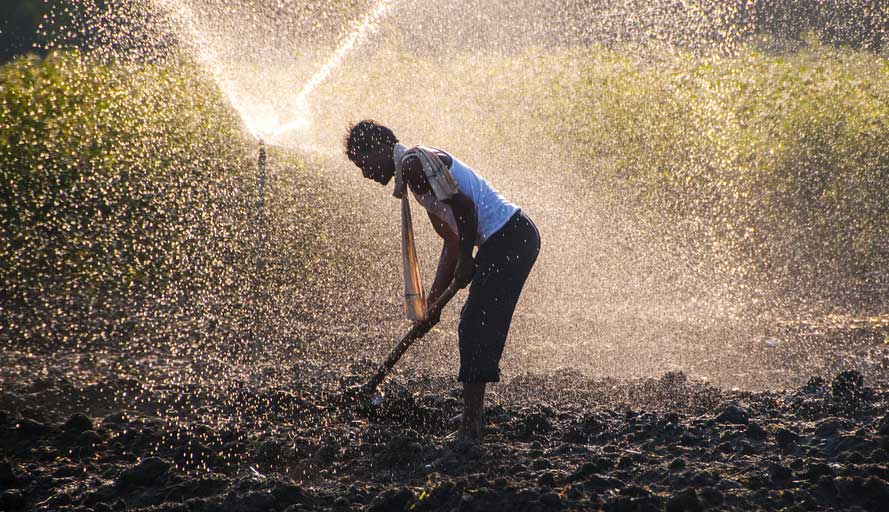The Narendra Modi government may transfer to farmers directly the difference between the minimum support price and the market price of their produce, or pay a fixed subsidy per acre.
A high-level meeting was held on Wednesday night where Prime Minister Narendra Modi, finance minister Arun Jaitley and agriculture minister Radha Mohan Singh considered various proposals on agriculture.
Electoral reverses in three key Hindi heartland states — Madhya Pradesh, Chhattisgarh and Rajasthan — had put the ruling BJP-led NDA alliance on alert.
Analysts say farmer discontent was one of the main reasons for the BJP losing in these states.
The Congress has upped the ante by waiving farm loans in these three states after assuming power.
The BJP has experimented with what it calls the Bhav-antar scheme in Madhya Pradesh in the last few years, where it tried to pay farmers the difference between the minimum support price announced by the government and the actual market price, which was usually lower.
As the Food Corporation of India and state agencies have been unable to pick up the grain offered at mandis on account of storage problems, private traders have been pushing down prices way below the minimum support price. The Bhavantar scheme was expected to bridge the gap.
However, analysts say it did not function well as the actual mandi rates were difficult to determine.
“There used to be a difference between the official and actual Mandi rates … also the farmer who is tied to the grain trader through pre-sowing loans used to have problems in reporting losses. The biggest problem was of course the fact that land owners and land tillers often were a different set of people and benefits usually went to land owners,” said officials.
Another model which is being looked at is Telangana’s Rytha Bandhu on which the finance ministry is believed to have done a study — the scheme promises farmers a pre-sowing subsidy of Rs 4,000 per acre.
The problem in implementing the scheme on a nation-wide basis, however, is the amount of money required to fund it.
Lower-than-expected revenue realisation has put brakes on sops that the government can offer. On top of that, the challenge thrown by the US and Australia against India’s minimum support price regime before the WTO has made it tough for the government to consider higher MSP pay-outs.
To top it, a spate of farm loan waivers announced last year by the BJP-led state governments has failed to satisfy farmers, principally because the main source of financing for small farmers are grain traders and informal bankers who are beyond the ambit of state regulations and often charge very high rates of interest.
“The revenue situation does not permit any great outlays on subsidies. Only if this government finds ways of earning more money it could go in for a large scale direct benefit scheme for farmers,” said Biswajit Dhar of JNU’s Centre for Economic Policy and Planning.
Despite the promises, the reality has been that in the last four years, GDP from agriculture has grown just 2.5 per cent compared with 5.2 per cent in the UPA-II period. The inflation rate during 2014-18 has ranged between 3.6 per cent and 5.8 per cent annually.
The government did try to improve the situation by increasing the minimum support price for many crops. The MSP of the common variety of paddy was increased by Rs 200 to Rs 1,750 per quintal, or by 13 per cent. However, farmers considered the increases to be too little, too late, especially as the government agencies did not buy enough grain to force private millers to pay the bonus prices.
Alert on waivers
The farm loan waivers announced by various states, including Madhya Pradesh, Rajasthan and Chhattisgarh, will adversely impact the combined capital spending of the states, warns a report by India Ratings on Thursday.
States’ capital spending is a major driver of investment growth.











